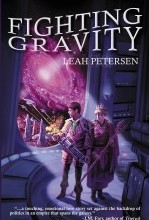Since I am doing a guest Write Tip at Elizabeth Spann Craig’s Mystery Writing Is Murder Blog today, I didn’t want to post another Write Tip here. I’ll have a new one Thursday instead. But I did invite Leah Petersen to guest with a funny post on Punctuations and Personality! Her follow up post to this on Grammatical Error Personality Types can be found at her blog here.
Your Punctuation Personality Type
by Leah Petersen
A recent (totally made up) scientific study analyzed what your favorite punctuation mark means about you. Every writer, every person, over-uses and abuses at least one punctuation mark. Here’s what your particular weakness means about you:
Period (.): Type A personality. You are decisive and clear. You have no difficulty with setting limits. Often a stodgy person that no one else thinks is any fun to hang out with. You tend to be good with technology and have the latest gadgets.
Comma (,): The peacemaker. You like to help others, and you get along with everyone. You like to make sure people understand each other. You like clarity as much as the Period type, but, unlike him, you don’t subscribe to the “less is more” theory. You believe more information is better than not enough. For this reason you sometimes confuse others and can become tiresome. But, in general, you’re fun, or at least tolerable, to be around. If not, you can make people think you are.
Exclamation point (!): You are excitable and anxious. You don’t self-censor well and think that your opinion always matters. You use italics a lot in written communication. You get  nervous easily and are often too loud. You’re either an overly-affectionate or a mean drunk. You’re fun at parties.
nervous easily and are often too loud. You’re either an overly-affectionate or a mean drunk. You’re fun at parties.
Question mark (?): Indecisive and uncertain. You over-analyze. You may be shy and have low self-esteem. People usually have no idea you’re there.
Colon (:): You like things to be well-delineated. Much like the Period type, you like order. You make lists. People always know where they stand with you. You usually get asked to organize the office parties and school functions.
Semi-colon (;): You’re well-read and urbane. You knew where this was on the keyboard before it became part of the winky emoticon. You’re more easy-going than Colon or Period types, but you’re still put together and usually organized. People are comfortable around you and tend to like you, though they may not be able to say exactly why.
Hyphen (-): You like having fun. You are often creative and are very social. You like throwing parties, though you may call on your Colon type friends to organize them. You’re more likely to be impulsive and throw unlikely things together. No one would be surprised that your decor is shabby-modern or artsy-classic.
En-dash (–): If you knew this was a different mark than the hyphen, you are way too into punctuation. You’re either an editor or a schoolteacher, or else no one likes you. At all.
Em-dash (—): You’re stuck up and pretentious. You correct people’s grammar and complain about how stupid kids are these days. You like to show off. You made good grades in school and perform well at work. Your boss loves you, even if your co-workers don’t.
Parentheses ( () ): You’re scatterbrained. You throw things together at the last minute. You’re often hopping back and forth between different tasks and think you’re multi-tasking. You tend to bore people with your stories because you think every detail is important and you repeat yourself. You are often sarcastic but are good at making other people laugh, often at someone’s expense. (Including your own.)
Ellipses (…): An indecisive and flighty person. You lose your train of thought easily. You are a follower and like to let other people take the risks. You often misplace your keys or spend ten minutes looking for the glasses you’re already wearing.
Apostrophe (‘): You’re casual and carefree. You’re always the one who has random things in your purse or glove compartment that no one else would think to carry around but somehow you end up in situations where it’s a good thing you had that thumb-tack on you. You have lots of friends, usually without really trying. People just like you.
Quotation Mark (“): You aren’t very original. You tweet famous quotes a lot. You are nosy and like to gossip; mostly because you don’t have anything of substance to add of your own. People like to hang out with you for a coffee break but don’t really consider you a friend.
Slash (/): You’re a complicated and complex person. You can be secretive and have a hard time trusting people. You like to keep your options open. You’re the respectable housewife your friends will be shocked to see coming out of the S&M club.
Brackets ([ ]): You are snobbish and self-important. You are likely to use these to add “[sic]” to other people’s comments. You have no friends and probably have a “kick me” post-it on your back right now.
Asterisk (*): Nothing is ever final with you. You can justify anything and have an excuse for everything. You would make a good lawyer. People either find you entertaining, or really boring, because you know lots of random trivia.
Ampersand (&): You like stuff. You collect things and are a packrat. You’re friends with everyone, whether they know it or not.
At symbol (@): You’re very social, sometimes overly. You’re the one who always takes a phone call in the middle of a conversation. You also spend way too much time online. Go get some fresh air. Taking your iPhone out on the porch doesn’t count.
Hash/pound (#): Much like the @ type, you’re online too much, but, unlike @ types, in real life you have few friends and are reclusive. Before the internet, you called customer service lines just to have someone to talk to.
Bullets (•): You have OCD.
 Leah Petersen lives in North Carolina. She does the day-job, wife, and mother thing, much like everyone else. She prides herself on being able to hold a book with her feet so she can knit while reading. She’s still working on knitting while writing. Her first novel, Fighting Gravity, a science fiction romance with same sex themes is available now from Dragon Moon Press. The story of Jacob Dawes and his relocation from the ghetto to the Imperial Intellectual Complex, where he is expected to benefit the Empire with his genius, the book examines social structure and personal improvement as much as the unpredictable human heart. You can read the YA Report review at SFWRTCHT here and an SFFWRTCT interview with Leah here. She’ll be the live chat guest at SFFWRTCHT on 6/27/12. She can be found on Twitter at http://twitter.com/LeahPetersen, via Facebook at http://www.facebook.com/LeahPetersenAuthor, on Goodreads at http://www.goodreads.com/leahpetersen, via Google+ at http://profiles.google.com/leahpetersen or at www.leahpetersen.com.
Leah Petersen lives in North Carolina. She does the day-job, wife, and mother thing, much like everyone else. She prides herself on being able to hold a book with her feet so she can knit while reading. She’s still working on knitting while writing. Her first novel, Fighting Gravity, a science fiction romance with same sex themes is available now from Dragon Moon Press. The story of Jacob Dawes and his relocation from the ghetto to the Imperial Intellectual Complex, where he is expected to benefit the Empire with his genius, the book examines social structure and personal improvement as much as the unpredictable human heart. You can read the YA Report review at SFWRTCHT here and an SFFWRTCT interview with Leah here. She’ll be the live chat guest at SFFWRTCHT on 6/27/12. She can be found on Twitter at http://twitter.com/LeahPetersen, via Facebook at http://www.facebook.com/LeahPetersenAuthor, on Goodreads at http://www.goodreads.com/leahpetersen, via Google+ at http://profiles.google.com/leahpetersen or at www.leahpetersen.com.


